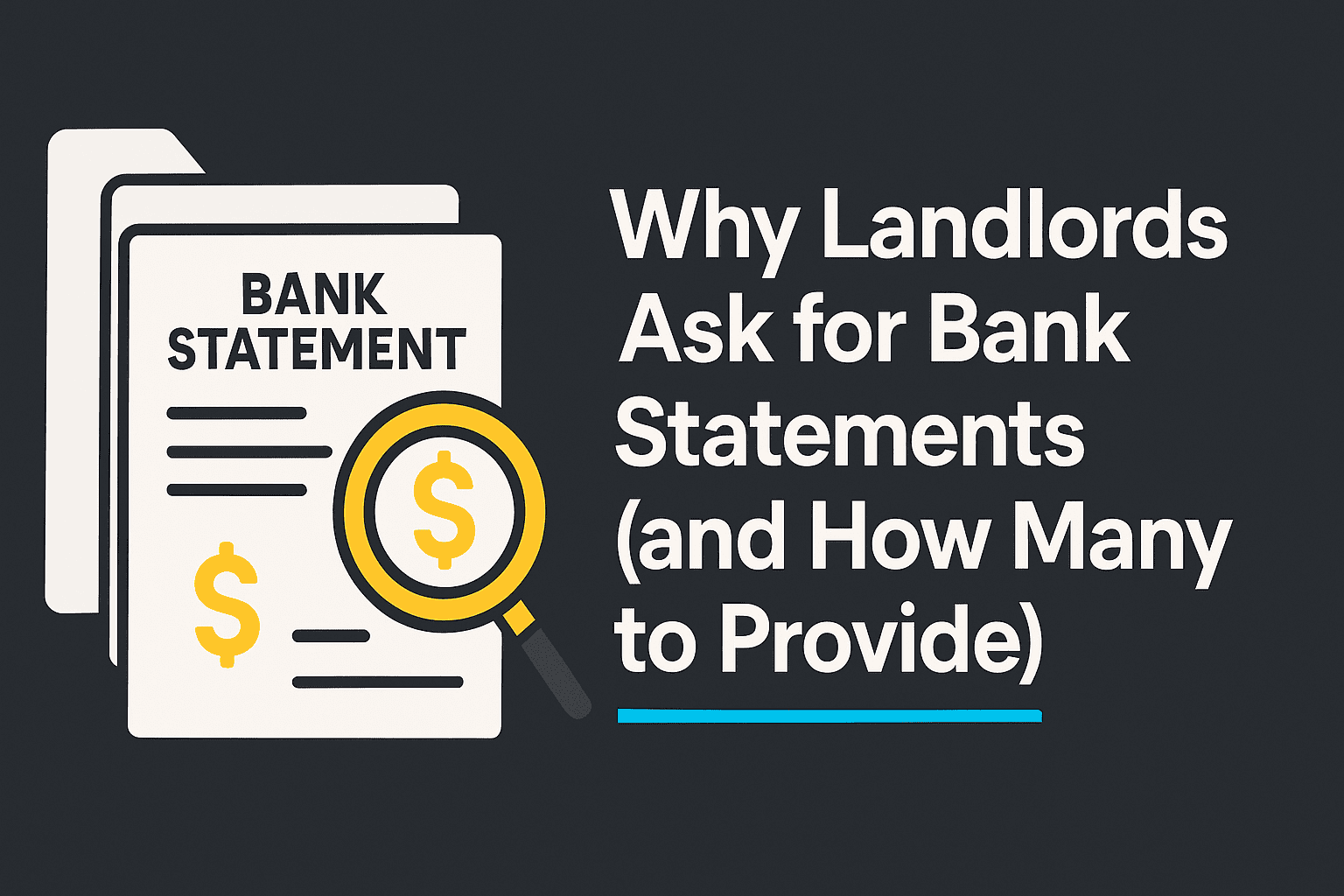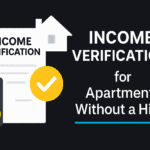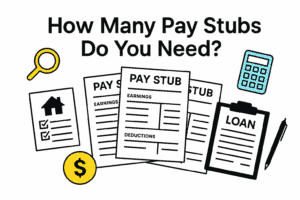Why do landlords ask for bank statements?
Last updated: September 2025
Rental screening is a risk‑management exercise, not a fishing expedition. By reviewing bank statements, property managers validate income stability, confirm identity details and watch for warning signs such as repeated overdrafts. Clear, accurate statements help you get approved faster and build trust with your future landlord.
This guide explains why landlords in the U.S., U.K. and Canada request statements and how many months to provide. We also cover legal guardrails, allowed redactions, and packaging tactics that protect your privacy. If you’re assembling bank statements for rental application review, use these practices to prove affordability without oversharing.
- Proof of income documents
- Pay stubs & payslips
- W‑2 and 1099 forms (US)
- Notice of Assessment (NOA) & T4 (Canada)
- Fair Credit Reporting Act (FCRA)
- Consumer Financial Protection Bureau (CFPB)
- Financial Conduct Authority (FCA)
- Canada Revenue Agency (CRA)
- Personal Information Protection and Electronic Documents Act (PIPEDA)
- Right to Rent checks (UK)
- Tenant screening & KYC/AML
- Bank statement redaction
Our team at FinancialDocsProvider.com specialises in formatting and organising financial records. We make sure your bank statements, pay stubs and tax documents are tidy and easy to review – without altering the truth. Learn more about our bank statement formatting and proof of income editing services.

What are the legal basics of landlords requesting bank statements?
Landlords can request statements when it’s necessary to assess affordability and identity. Requests must be proportionate, consistent and handled securely. You may ask why a document is needed and, in some cases, offer alternatives.
In the United States, the Fair Credit Reporting Act (FCRA) allows financial information to be used for tenant screening with your consent and for a legitimate “permissible purpose.” Landlords may verify employment, run credit checks and request supporting documents like W‑2s or 1099s, provided they safeguard your data and avoid discriminatory use.
In the United Kingdom, there is no blanket ban on requesting bank statements. Many agents request three months to evaluate affordability. The Data Protection Act 2018 and GDPR require collecting only what’s necessary and storing it securely. You can often provide redacted copies that show deposits, balances and account type while hiding sensitive identifiers.
In Canada, landlords may ask for two to six months of statements to verify income. The Personal Information Protection and Electronic Documents Act (PIPEDA) governs how private‑sector organisations collect and use personal information. Borrowell notes that tenants aren’t legally required to supply a bank statement, can question necessity, and may propose alternatives such as pay stubs or a CRA Notice of Assessment.
Anti‑discrimination rules apply everywhere. In the U.S., fair housing obligations and FCRA enforcement sit with agencies including the FTC. In the U.K., Right to Rent sets out identity and immigration checks. In Canada, the Privacy Act and provincial rules limit unnecessary data collection. Knowing the rules helps you cooperate while protecting your privacy.
Compliance Snapshot: Allowed vs. Illegal Edits
Minor privacy redactions are acceptable; altering facts is not. Use the list below as your operating model before submitting statements.
- Allowed edits: Redacting account numbers except the last four digits; highlighting or annotating deposits; combining monthly PDFs into one file; exporting to PDF for readability; adding bookmarks or page numbers.
- Not allowed: Changing amounts or balances; altering dates or counterparties; fabricating transactions; adding or removing pages to misrepresent history.
- Consent matters: Landlords need written consent before pulling credit or requesting financial records. You may refuse unreasonable requests, recognising this may affect approval.
- Privacy protection: Landlords should store statements securely and dispose of them when screening ends.
Every FinancialDocsProvider.com engagement starts with these guardrails. We never fabricate data or modify balances. Our role is to organise your legitimate records so underwriters can verify them quickly. Learn more about our process.
Which edits are allowed when preparing your documents?
You can protect privacy without obscuring truth. Redactions and formatting are fine when they preserve underlying numbers and context. The objective is a clean, verifiable file that makes review easier, not different.
Here are edits that are typically allowed and recommended for compliance:
Can I redact sensitive information?
Yes. You may hide your account number except the last few digits, as well as home addresses or branch details. Most landlords only need deposit amounts, account type and balance history to evaluate affordability. Thoughtful redaction reduces identity‑theft risk while still proving income.
How to redact correctly:
- Use a proper PDF redaction tool that removes text, not just covers it.
- After redacting, try copying the hidden text. If it pastes, your method failed.
- Save the file as a new PDF and check every page for missed identifiers.
- Keep an unredacted original stored safely in case an underwriter requests it.
How should I format digital statements?
Download official PDFs from your bank, not screenshots. Combine months into one file, order them newest to oldest, and include all pages. Add page numbers and, if the file is long, bookmarks for each month. Our bank statement formatting service ensures every page is legible and consistent.
File‑naming tip: Use a standard pattern like Lastname_Firstname_Bank_MMM‑YYYY.pdf. Consistent names prevent lost files and speed reviews.
What about highlighting or annotating?
Highlighting relevant deposits and adding short clarifying notes often helps underwriters. Label seasonal income, commissions, and one‑off transfers so reviewers can match deposits to source. Do not overwrite or obscure existing text; add comments or a simple callout box instead.
Mini‑scenario: You receive a one‑time relocation bonus. Add a note: “Relocation bonus per offer letter, May 12 – see pay stub.” That context can prevent unnecessary back‑and‑forth.
Why is exporting important?
Statement PDFs vary by bank. Some include watermarks or colour gradients that print poorly. Exporting a clean PDF preserves layout and avoids scanning artefacts that look suspicious. Our tools optimise readability and preserve authenticity.
Following these guidelines instills confidence in landlords and lenders. If an edit changes the meaning of the numbers, don’t do it. When in doubt, our proof of income editing specialists can advise on what’s acceptable.
What counts as an illegal edit on a bank statement?
Any change that misrepresents income, balances or timelines can be treated as fraud. Landlords and lenders cross‑check statements against payroll, tax records and credit reports; inconsistencies surface quickly. Penalties range from immediate rejection to potential criminal charges.
Never attempt to:
- Change deposit amounts, balances or transaction dates.
- Insert or remove transactions to hide overdrafts or debt.
- Swap names or account holders on a statement.
- Create fictitious bank statements using editing software.
Property managers use statements to verify income, confirm identity and detect fraud. Tampering erodes trust and may violate U.S. federal law (18 U.S.C. § 1001), the U.K.’s Fraud Act 2006, and Canada’s Criminal Code. If a statement contains a bank error, request an official correction rather than editing the file yourself.
Note on metadata: Altered PDF metadata or mismatched fonts can also raise flags. Use original downloads wherever possible to avoid unintentional suspicion.
When do you need professional document formatting?
For straightforward cases, you may package statements yourself. Complex situations benefit from a polished, well‑organised file that anticipates underwriter questions. Professional formatting can prevent delays, especially when income varies or the market is competitive.
Here are common scenarios:
Are you applying for a rental property?
Most landlords want three months of statements. Some ask for six months when income fluctuates, the unit is high‑demand or a guarantor is involved. Provide a clean, chronological file labeled by month so reviewers can scan quickly. If you’re relocating internationally, include proof of prior rent payments, references and additional months of statements to bridge limited local credit.
Mini‑scenario: You switched jobs last month. Pair the last three statements with your new offer letter and the first pay stub. Add a short note highlighting continuity of income.
What about auto loans and financing?
Auto lenders typically rely on pay stubs and credit reports. If you’re self‑employed or commission‑based, expect a request for two to three months of bank statements to show consistent deposits. A neat package that links deposits to invoices can shorten the decision cycle and, in some cases, support better terms.
Do SBA and business loans require statements?
Government‑backed loans often require six to twelve months of statements to show cash flow and reserves. Provide separate files for business and personal accounts, each with a one‑page summary. Use simple labels like “Operating Account – Cash‑flow summary” to help underwriters navigate quickly.
Mini‑scenario: A seasonal retailer requests an SBA loan. Add a summary chart of monthly deposits and a note explaining holiday spikes. The chart guides reviewers to the context before they examine the details.
What if you’re self‑employed or gig‑economy?
Self‑employed applicants often supply a year of statements plus a recent tax return. In Canada, Borrowell notes that a Notice of Assessment or a CRA proof‑of‑income statement commonly complements bank records. In multi‑income households, include a short cover sheet mapping deposits to each source to reduce follow‑up questions.
Professional formatting doesn’t make numbers “look better.” It presents what’s true in a concise, verifiable way. Explore our services and pricing to support your next application.
How does FinancialDocsProvider.com work?
Our workflow is designed to save time, reduce friction and respect privacy. We focus on clarity, consistency and compliance so your reviewers can move quickly. Here’s how we operate end‑to‑end:
- Intake. Upload raw statements, pay stubs and tax forms via our secure portal. We never request online‑banking credentials.
- Reconciliation. We review for completeness and consistency. If a page is missing or a name mismatch appears, we flag it so you can obtain corrected documents from your bank.
- Formatting & redaction. We organise statements chronologically, add page numbers, highlight key deposits and redact sensitive details using proper redaction tools.
- Quality check. A final review confirms legibility, consistency and alignment with supporting documents like W‑2s or NOAs. We verify that deposits tie to your stated income.
- Delivery. You receive a password‑protected PDF packet ready for landlords, lenders or underwriters. Basic formatting typically completes within 24 hours; complex packages may take longer.
We operate within ethical boundaries. We do not create fake statements or alter balances—ever. Our goal is to present facts cleanly so decision‑makers can say yes with confidence. Learn more on our About Us page.
What’s the compliance checklist for submitting bank statements?
A well‑prepared package reduces questions and protects your data. Use this checklist to submit statements that are easy to review and defensible in policy terms. Tailor it to the specific landlord or lender.
- Confirm how many months are needed. Most landlords ask for three months; some may require six. Business loans can demand up to twelve months of statements.
- Download official PDFs. Obtain your statements directly from your bank’s website or request copies from a branch. Avoid screenshots or third‑party aggregators.
- Check for completeness. Ensure each month includes all pages. Missing pages can raise suspicion and cause delays.
- Review personal details. Your name and address should match your rental or loan application. Correct any errors with your bank.
- Redact sensitive data. Block out account numbers except for the last four digits and hide small transactions not relevant to your application.
- Organise chronologically. Place the most recent statement first, followed by older months. Add page numbers or bookmarks for clarity.
- Add a summary sheet. If your income varies, provide a brief explanation of any large deposits or irregularities. This helps underwriters understand your financial picture.
- Secure your files. Password‑protect the PDF and share it through a secure portal or encrypted email. Dispose of physical copies securely.
- Verify text is selectable. If reviewers can’t search or copy text, they may reject scans. Use native PDFs, not photos.
- Align dates to the application period. Provide consecutive months that cover the landlord’s requested timeframe.
- Explain cash deposits. Large cash entries require context or documentation. Add a note or supporting proof.
- Use consistent file names. Standard naming helps reviewers track documents with fewer questions.
Working with a professional service takes the stress out of this process. See our proof of income editing packages to find the right fit.
What red flags cause landlords or lenders to reject documents?
Most delays stem from avoidable packaging issues. Knowing the common red flags helps you prevent misinterpretation and keeps your application on track. Use the list below to pre‑empt questions.
Here are issues landlords and underwriters notice:
- Incomplete statements. Missing pages or months create gaps. Many landlords require three consecutive months; a missing month implies concealment.
- Mismatched details. If the name or address on a statement differs from your application, update records before submission.
- Overdrafts and negative balances. Frequent overdrafts, low ending balances or numerous NSF charges suggest instability.
- Large unexplained deposits. Sudden inflows look like unverified income. Provide a brief explanation or proof of source.
- Signs of tampering. Inconsistent fonts, irregular spacing or low‑quality scans can suggest editing. Always send original digital copies when possible.
- Mobile screenshots. Cropped app images miss footers and page counts. They often get rejected on sight.
- Out‑of‑date statements. Submitting old months when the policy requires current coverage delays decisions.
If any of the above applies to you, speak with a professional. We can help you annotate statements and explain anomalies in a way that satisfies underwriters without exposing unnecessary details.
Where can you find more official resources?
Confidence comes from understanding your rights and obligations. The sources below provide jurisdiction‑specific guidance. Use them to confirm requirements and discuss alternatives if needed.
- U.S. Fair Credit Reporting Act (FTC) – explains permissible uses of financial records and tenant screening requirements.
- UK Right to Rent Guidance – outlines identity and immigration document checks for landlords.
- Canada Privacy Act – covers collection and handling of personal information by organisations.
- IRS W‑2 instructions – describes employment income forms often used as alternatives to bank statements.
- CRA Notice of Assessment – information on Canadian tax assessments and proof of income statements.
- Bank Statements Proof of Income: When They Work & Don’t – our in‑depth guide on when statements are accepted and when other documents are better.
- Bank Statements vs. Pay Stubs: Which Proves Your Income Better? – explores the pros and cons of different income documents.
- Bank Statements for Rental Application: 6‑Month Guide – offers packaging tips specific to rental applications.
- How Many Bank Statements for a Personal Loan? – clarifies lender requirements for different loan types.
For further assistance, browse our full list of services or contact our team. We’re here to help you navigate the documentation maze.
Frequently Asked Questions
These short answers address common questions we receive from renters and loan applicants. Use them as a starting point, then confirm specific requirements with your landlord or lender. Policies vary by jurisdiction and by underwriter.
How many months of bank statements do landlords usually require?
Most landlords request three consecutive months of statements to gauge your recent income and spending habits. Some may ask for up to six months, especially in competitive markets or when income varies. For business or SBA loans, be prepared to provide up to twelve months of statements.
Can I hide certain transactions or personal data?
You can redact sensitive personal information like account numbers, but you must not alter or remove transactions. Landlords need to see your deposit history, balance trends and payment behaviour. If you have unusual deposits, include a brief explanation rather than omitting them.
What if I’m self‑employed?
Self‑employed applicants should provide bank statements alongside tax documents. In Canada, a Notice of Assessment or proof of income statement from the CRA is commonly used. In the U.S., 1099 forms and bank statements together paint a full picture. If your income is seasonal, consider including a year‑to‑date profit/loss statement.
Is it legal for landlords to keep my bank statements on file?
Landlords must handle your statements securely and destroy them once the screening process is complete. Retaining or sharing your statements without consent can violate privacy laws. Ask your landlord about their data retention policy and request confirmation that your documents will be shredded or deleted after use.
Can I provide other documents instead of bank statements?
Yes. Pay stubs, tax returns, W‑2s, 1099s, letters of employment and reference letters are common alternatives. MoneyLion notes that landlords often accept W‑2s or pay stubs in place of bank statements. However, some landlords may still request statements to verify deposits. Clarify requirements early in the process.
Need accurate, reliable financial documents fast? Contact FinancialDocsProvider.com now.





Add comment